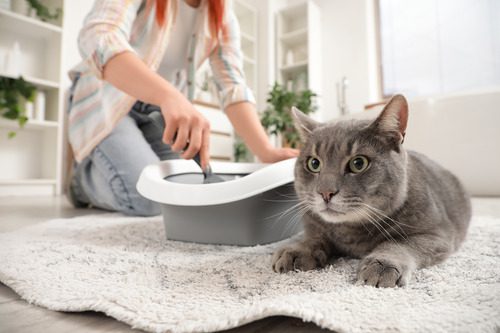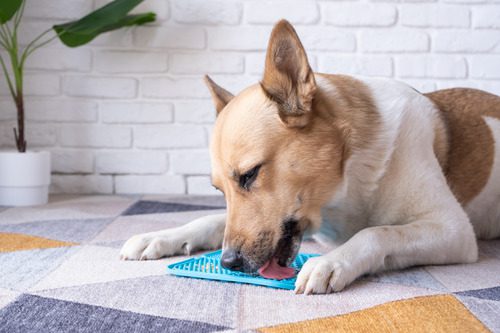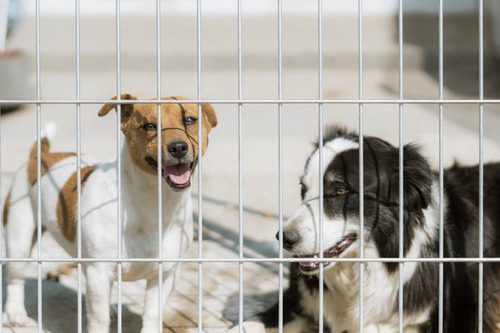Can Dogs Eat Potatoes? Exploring the Safety of Potatoes for Dogs
You can boil them, mash them, and stick them in a stew. Potatoes are highly versatile vegetables that just about everyone loves, and dogs like them, too! But…is it truly OK to give your dog potatoes? Well, it isn’t a simple yes or no answer. That’s why, in today’s blog, we explore the classic potato and its safety for pet consumption. Potatoes can be perfectly fine to give to your dog, but there are certain conditions required to ensure they’re safe for your pet to consume. Read on for important information about potatoes and the various factors that can make them safe, or not so safe, for dogs to eat.
If you have any questions or concerns related to this blog topic, please get in touch with Best Friends Veterinary Hospital in Crossville, TN by calling (931) 459-2006 for more information!

The Nutritional Value of Potatoes for Dogs
Potatoes are super rich in nutrients, containing vitamins and minerals that are essential to our health, such as vitamins C and B6, and iron and magnesium. These nutrients are a net positive for your dog’s immune and nervous systems and their overall health!
It’s not uncommon to find dog foods on the market that contain potatoes. But if you want to feed your dog potatoes on your own, you need to be aware of a couple of potentially harmful substances they contain: solanine and oxalates.
Why Raw Potatoes are a No-Go: Solanine and Oxalates
Solanine and oxalates are two different compounds found in certain plants, including potatoes, and it’s important to understand their effects, especially when it comes to feeding potatoes to your pet.
Solanine
Nature and Source
Solanine is a glycoalkaloid poison. It’s found in plants that belong to the nightshade family, like potatoes (especially in the green parts and sprouts), tomatoes, and eggplants.
Effects on Dogs
In dogs, solanine can be toxic. While cooking potatoes reduces their solanine levels, raw potatoes contain high amounts that can be harmful. Solanine affects the nervous system and can also cause gastrointestinal distress.
Symptoms of Solanine Toxicity
If a dog ingests too much solanine, they might exhibit symptoms such as nausea, diarrhea, vomiting, cramping, dizziness, and in severe cases, neurological disorders.
Oxalates
Nature and Source
Oxalates, or oxalic acid, are naturally occurring compounds in many plants, including the skins of potatoes. They’re also found in other vegetables like spinach and beets.
Effects on Dogs
When consumed in large amounts, oxalates can lead to health issues in dogs, primarily affecting the kidneys. They can contribute to the formation of crystals in the urinary tract, possibly leading to kidney stones.
Symptoms of Oxalate Toxicity
Ingesting high levels of oxalates can cause kidney problems, and symptoms may include lethargy, weakness, vomiting, and changes in urination.
Dog-Friendly Potato Preparation Tips
Below, we offer some tips to help you prepare potatoes the right way for your dog so they get all the benefits and none of the harmful effects.
How to Prepare Potatoes
To ensure safety, potatoes should be thoroughly cooked and unseasoned. Avoid adding ingredients like salt, garlic, and onion powder, which are all toxic to dogs.
Mashed Potatoes
Mashed potatoes can be shared with your dog, but again, they need to be served plain and unseasoned. Remember to avoid toxic seasonings and excessive salt.
Baked Potatoes
Baked potatoes are safe as long as they are peeled, cooked thoroughly, and free from seasonings. Be cautious of any flavors injected into the potato during cooking.
Understanding Potato-Related Health Risks
Some dogs with chronic internal health conditions may be more at risk for complications if they consume potatoes. For example, dogs with diabetes should avoid potatoes due to their potential to spike blood sugar levels.
Also, don’t forget the dangers of solanine and oxalates. Even if the potatoes are cooked, consuming an excessive amount may still cause poisoning. Be mindful of the quantity and frequency of potato treats for your dog. We don’t think your pet will ever have to worry about poisoning from potatoes, but accidents can happen, and it never hurts to be cautious!
Overall, when given in moderation and when properly prepared (cooked and unseasoned), potatoes can be a perfectly safe treat for your dog to enjoy. However, it’s essential to be aware of the compounds potatoes contain to prevent any health risks. If you’re ever unsure about what’s safe for your pet to eat or if you observe any unusual symptoms after they’ve eaten something new, it’s always a good idea to consult with a veterinarian.
Have Other Nutrition-Related Questions About Your Dog?
We would be happy to recommend nutrition options to help your dog get the most out of their diet. If you have any questions about potatoes or other foods or treats for your pet, don’t hesitate to call Best Friends Veterinary Hospital Crossville at (931) 459-2006. Like you, we want your companion to be happy and healthy for as long as possible!
Recent Posts
About Best Friends Veterinary Hospital
Our veterinarians and staff warmly welcome dogs, cats, and a variety of exotic pets as patients here at our animal hospital, and we offer a host of services to give your unique family member a lifetime of excellent care.





